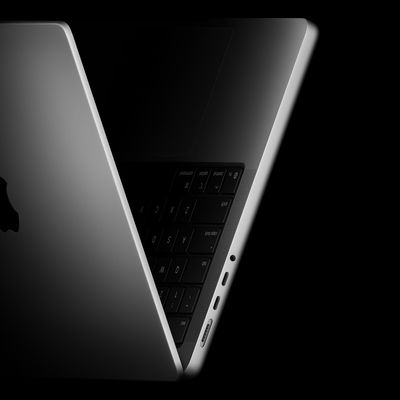Even as Apple's share of the smartphone market declined in the fourth quarter of 2013, the rise of smartphones to replace more basic feature phones has allowed the company to continue increasing its share of the overall mobile phone market, according to new numbers from research firm IDC.
According to IDC, yearly smartphone shipments topped one billion for the first time in 2013 and now represent 55 percent of mobile phone shipments, up from under 42 percent in 2012. The fourth quarter alone saw smartphone capture over 58 percent of the overall mobile phone market.

For full-year 2013, Apple's iPhone sales increased by 12.9 percent over 2012, trailing the broader smartphone industry's growth rate of 38.4 percent. Apple was, however, still able to retain firm control of second place in the rankings behind Samsung even as Apple's market share fell from 18.7 percent to 15.3 percent. It was a similar story for the fourth quarter on its own, with Apple's 6.7 percent growth in shipments trailing the broader market and causing the company's share to dip from 20.9 percent to 17.9 percent.
Apple posted record shipment volume during 4Q13, driven primarily by the addition of multiple countries offering the iPhone 5S and 5C, and sustained demand from its initial markets that saw these models launch at the end of 3Q13. Still, Apple had the lowest year-on-year increase of all the leading vendors. Now that Apple has finally arrived at China Mobile, it remains to be seen how much Apple will close the gap against Samsung in 2014.
But when looking at the overall mobile phone market, Apple performs much better due to its exclusive focus on the rapidly growing smartphone segment. According to IDC's numbers, Apple easily outpaced overall market growth of 4.8 percent for 2013 and 0.9 percent for the fourth quarter alone, boosting Apple to an 8.4 percent share for the full year and 10.4 percent for fourth quarter. Apple continues to sit firmly in third place among all mobile phone manufacturers behind Samsung and a rapidly falling Nokia.

Just yesterday, Apple released its earnings report for the fourth quarter (first fiscal quarter of 2014), revealing fairly strong overall performance but weaker than expected iPhone numbers that helped drive Apple's stock down nearly 8 percent at the opening of trading today. And with the iPhone accounting for 56 percent of Apple's revenue for the quarter, it's clear the device continues to be the main factor in measuring Apple's success.





















Top Rated Comments
What is important is healthy -
* iPhone sales, which we saw yesterday.
* healthy iOS eco system
Marketshare data is one data point, out of many.
Because that would have meaning?
I'm pretty sure Apple cares about marketshare - not just marketshare of the "high end" market. Do they care about that - yes - but as a part of the whole pie.
Any attempt to imply otherwise is pure rationalization.
p.s. Apple is doing very well marketshare wise. And there's room to grow (IE - increase) which is important. Even more important - they are very profitable.
This is the same for Porche or BMW -- yes they are losing market share to the overall car market, but in the premium sports car market they rule. And that's all they care about.
Market share is a look at the entire market to see how each company is ranked.
I'm sure all companies think about their individual market share among everyone else... but it's never a primary focus. It can't be. Companies can only control themselves... not everyone else.
Apple made the conscious decision to only sell expensive smartphones. They're certainly allowed to do that.
Other companies choose to sell across a full range of prices... including cheaper smartphones. And that appeals to a broader base of consumers.
The funny thing is... Apple is still the #2 smartphone vendor by units sales... despite only selling expensive smartphones. And you're right... they are very profitable.
And that's key here. What good is selling a bunch of phones to gain market share if it doesn't make you any money to keep your doors open?
These are businesses after all. You can't pay your bills with market share.